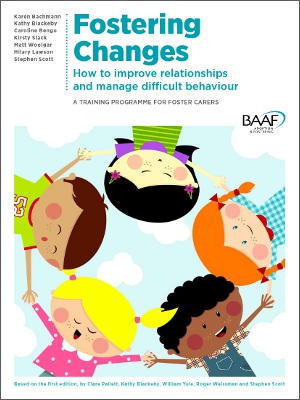
Fostering changes
£100.00
Caring for looked after children can be immensely stressful and complex, and foster carers need opportunities to process their experiences and reflect on their thoughts and feelings. The Fostering Changes programme provides practical advice and training for foster carers to develop their skills in managing challenging child behaviour and forming positive relationships with their foster children.
This unique training course was developed from that programme. It brings a collaborative approach to training and is designed for use with foster carers in local authority, voluntary and independent agencies. It draws substantially on ideas from parenting training programmes that use a cognitive behavioural approach to develop skills.
Course evaluation shows significant improvements in carer–child interaction, child emotional difficulties and specific child issues causing most worry to carers. It has also shown a beneficial effect on carers’ sense of confidence and self-efficacy.
This training programme will make an invaluable contribution to the support and retention of foster carers, enabling them to meet children’s needs as well as adapt to changing priorities
It will benefit foster carers looking after children under 12 years old, equipping them with the skills and knowledge to tackle a wide range of symptoms as well as manage difficult behaviour. Supervising social workers will also gain from the programme a sound working knowledge of cognitive behavioural strategies.
